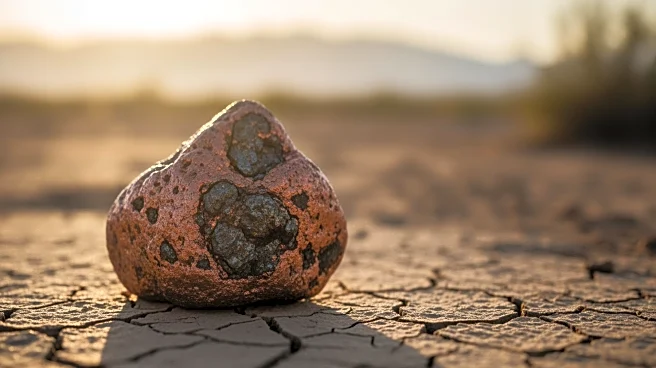What's Happening?
The UK Antarctic Heritage Trust (UKAHT) has initiated a three-year mission to preserve Port Lockroy, a historic British science base in Antarctica. The site, which includes the world's southernmost post office and museum, is facing structural deterioration due to climate change and environmental factors. A team of specialists, including base leader Lisa Ford and museum manager Amanda Barry, will work on Goudier Island to identify vulnerabilities, carry out repairs, and monitor the local gentoo penguin population. The team will live in challenging conditions, including sub-zero temperatures and 24-hour daylight, without running water or flushing toilets.
Why It's Important?
The preservation of Port Lockroy is crucial for maintaining historical and scientific heritage in Antarctica, a region increasingly affected by climate change. The mission highlights the growing challenges faced by conservation efforts in extreme environments. The work done by UKAHT not only safeguards historical sites but also contributes to scientific research, particularly in monitoring penguin populations, which are indicators of environmental health. The initiative underscores the importance of international cooperation in addressing climate-related issues and preserving global heritage.
What's Next?
The team will continue their work over the next few months, including during the Christmas period, as part of the first phase of the preservation plan. Their duties will involve structural repairs, penguin monitoring, and operating the post office and museum. The success of this mission could lead to further conservation efforts in Antarctica, potentially involving more international collaboration to address the impacts of climate change on historical sites.
Beyond the Headlines
The mission to Port Lockroy also raises awareness about the ethical responsibility to preserve historical sites in vulnerable regions. It highlights the cultural significance of such sites and the need for sustainable practices in conservation efforts. The involvement of individuals like Amanda Barry, who is fulfilling a personal legacy, adds a human dimension to the scientific and environmental challenges faced in Antarctica.










